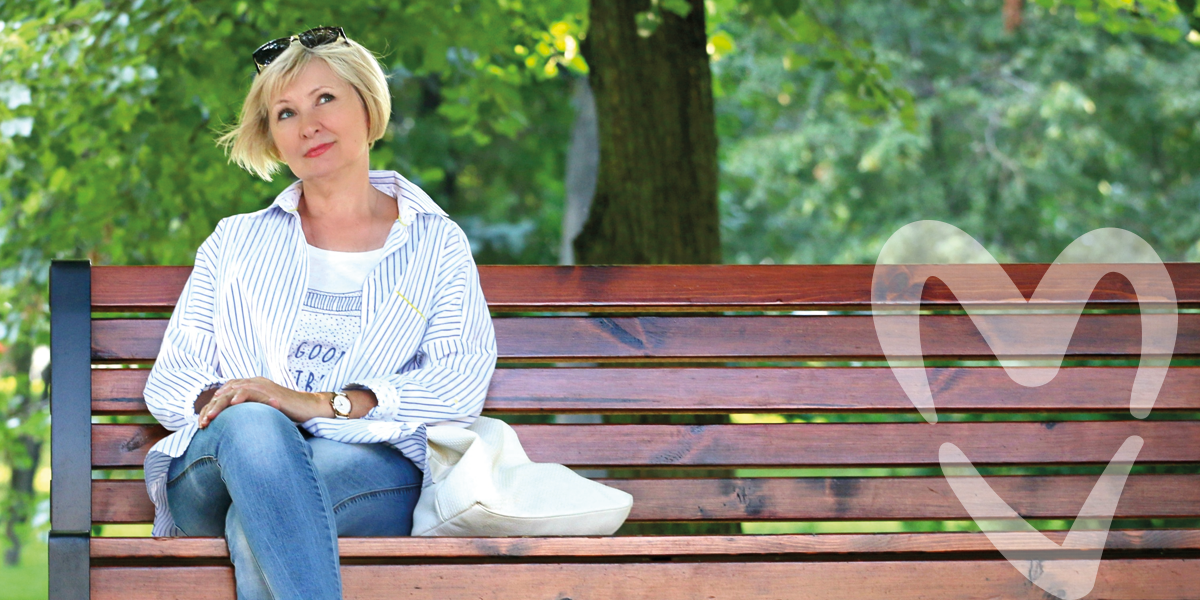MENOPAUSE MATTERS
A somewhat light-hearted approach to a heavy subject
The hormone oestrogen is like a loving devoted companion. Before you know it, you two hit it off, and for many years you live happily ever after. Oestrogen is a proper multitasker, there seems to be no end to its talents; it even knows how to team up with other hormones to make sure everything runs smoothly. Thanks to oestrogen, you have an interest in sex and monthly periods, it enables you to focus and remember things, it protects the walls of your blood vessels and makes sure your muscles and bones are in the best shape they can be. Basically, oestrogen has your back without ever wanting much in return.

That is until a time comes, usually between the ages of 45-55, when oestrogen decides that it is simply no longer into you. But rather than breaking up with you for good and leaving you for a younger model, it decides to gradually withdraw from you, wreaking maximum havoc with your body in the process. It’s a slow, sometimes decade-lasting payback for being taken for granted for such a long time. It’s called the menopause.
Everything aches, you have no energy, you are constantly tired, yet you cannot sleep or when you do, you get the dreaded night sweats. You are moody from the moment you wake up and, behind your back, your morning coffee has made friends with “The Hot Flush Gang”. Where once you were alert, you now struggle to remember the names of people you have known a lifetime. You are frightened to death and secretly consult “Dr Google” whether you may have dementia? It does not take a lot to make you cry these days either, sometimes you are not even sure why. You no longer feel sexy because you have developed a “spare tyre” that no amount of exercise or dieting seem to shift. And no one ever wants to make small talk about being dry or itchy “down there” because you feel ashamed or embarrassed. Vaginal dryness combined with excess belly fat and fatigue are not exactly the ingredients of a romantic love potion, so nothing much happens in the bedroom either. You simply struggle to get “in the zone”. This does not necessarily mean that you no longer fancy your other half, but sadly this is the message men often get as frequently, valuable information gets lost in embarrassment or shame.
Whilst the catalogue of menopausal signs and symptoms can be a little overwhelming, it is worthwhile to remember that each woman’s experience is quite unique. There is no one way to go through the menopause. The range of physical, mental and emotional symptoms varies, 20% of women experience no symptoms at all. Clearly, oestrogen has been kind to a chosen few, the rest of us have either mild to moderate (60%) or severe (20%) symptoms.
As women, I encourage us all to be that little bit braver and communicate openly that menopause matters to us and how it impacts on our lives. Loving relationships may be saved by just being more honest about how we feel, both emotionally and physically.
Unlike pregnancy, there are currently no legal provisions to acknowledge menopause related problems in the workplace. Are menopausal women all over the country needlessly suffering in silence? Please remember that reasonable adjustments can only be made if employers are actually aware of the issues we face. If embarrassment gets in the way and no one tells them anything, they will never know and consequently nothing changes if nothing changes.
Likewise, teenage girls, and boys, for that matter, need to know about what happens to women in menopause and the reasons why. It is our job to think and plan ahead. We need to provide today’s teenage girls and boys with advance menopause notice so tomorrow’s men and women are able to understand and be kind to themselves and one another when the time comes. Admittedly, right now, with their exciting lives still ahead of them, this may be the last thing on their minds. But initiating conversation, even quite possibly an awkward one at this stage, is better than not engaging at all. As always, knowledge is power. Having more awareness can help making menopause a more positive experience for women and enable the people around them to lovingly and effectively support them throughout these challenging years. We need to understand that, for the majority of women, entering the menopause is a natural and normal process, it’s the female body’s response to a change in reproductive circumstances.
And yes, it’s not a bed of roses and may come with some rather unwelcome symptoms. But it’s not all doom and gloom either. Most of the symptoms can be managed by various means, once we have acknowledged that they are there for a reason and that it this is normal process. It is also perfectly acceptable to not always like them and be at peace with that, too. It does, however, not make us less of a woman, neither does it mean the end of the road. On the contrary, once we have made friends and with a warm heart and kindness have accepted our changing status, we will be the wisest and strongest we have ever been. After all, as women we are known multitaskers. So move over oestrogen, because there is no menopause-messing with this girl!
